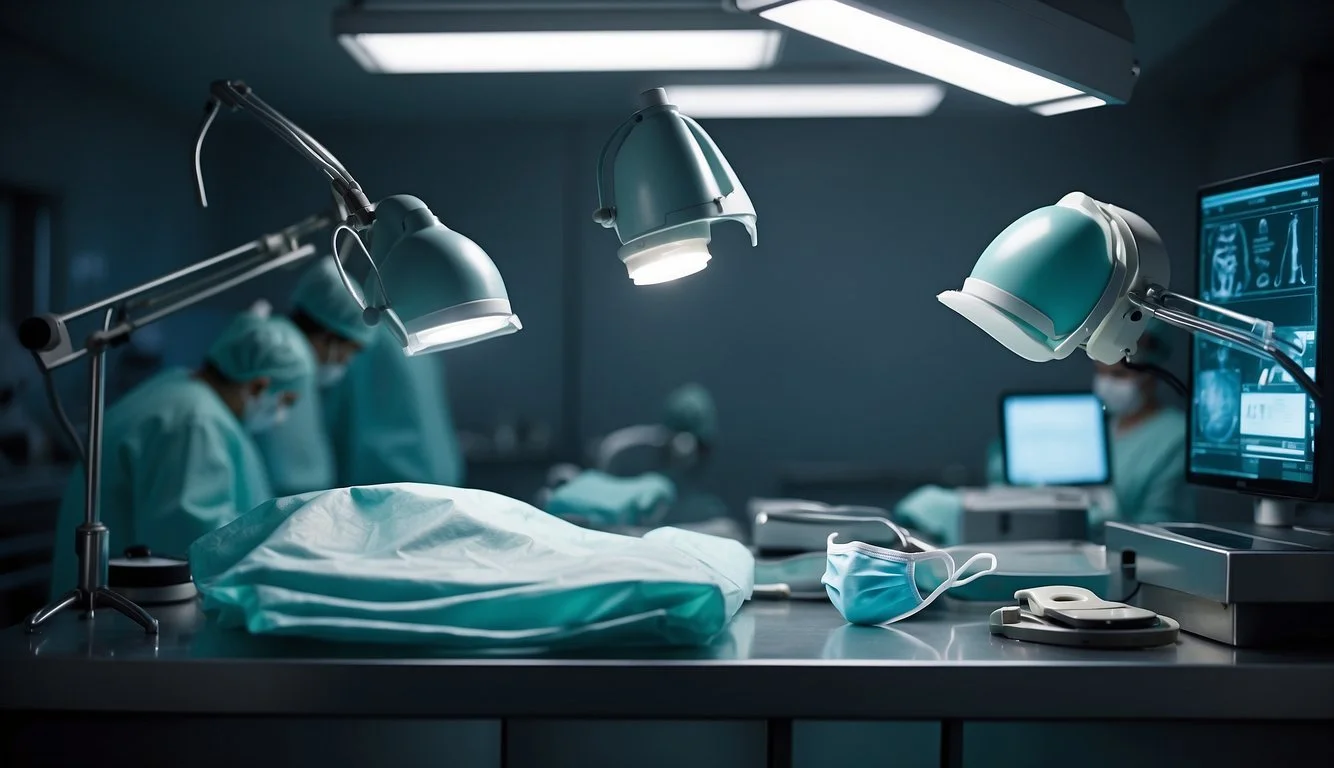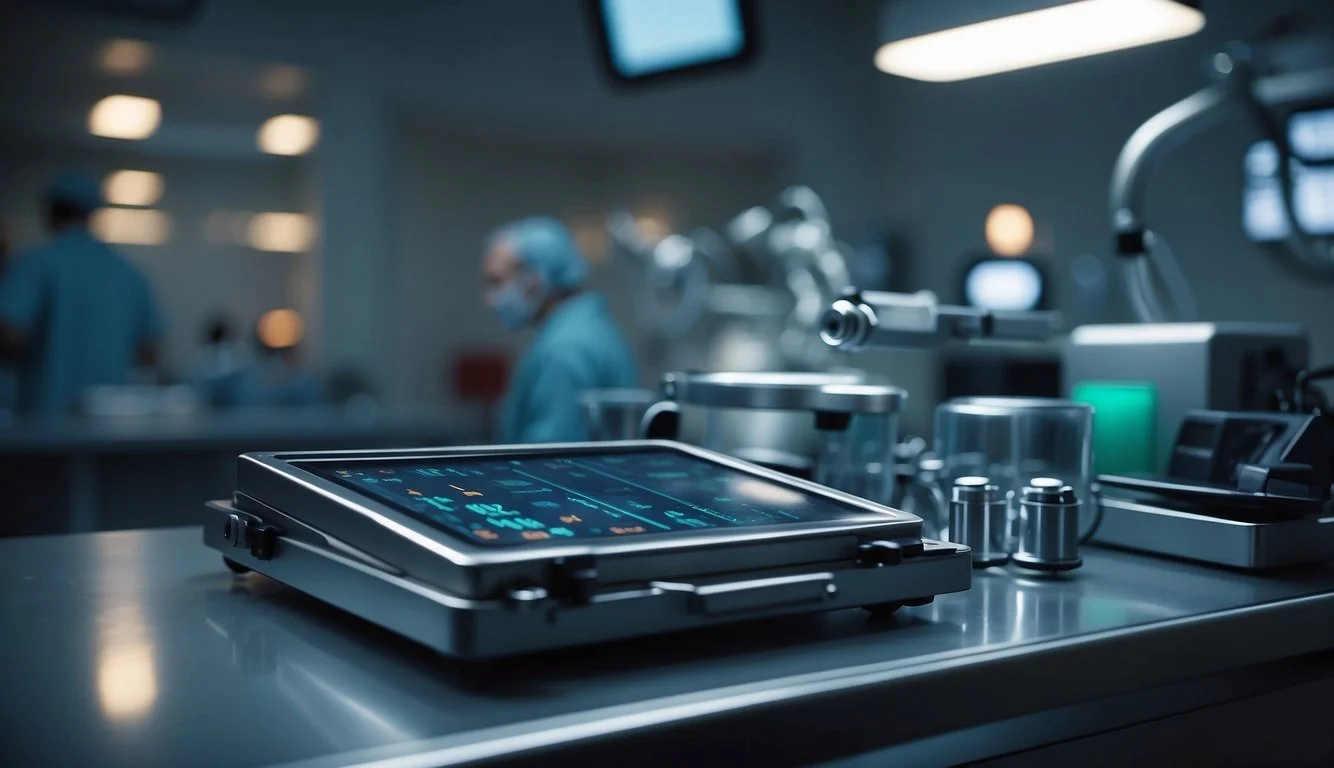Documentary Review: Bad Surgeon: Love Under the Knife (2023)
An In-Depth Analysis
Bad Surgeon: Love Under the Knife (2023) dives deep into one of the most scandalous frauds in modern medical history. Directed by Ben Steele, this gripping three-part docuseries follows the rise and fall of Dr. Paolo Macchiarini. Once hailed as a pioneer in regenerative surgery, Macchiarini's innovative stem cell-infused windpipe transplants promised a miraculous breakthrough in medical science.
What unfolds is a harrowing tale of deception and tragedy as the series uncovers the dark reality behind Macchiarini's so-called revolutionary techniques. The series expertly combines interviews, archival footage, and investigative journalism to present a thorough account of the lives affected by his malpractices.
Viewers are left questioning the ethical boundaries of medical innovation and the cost of blind ambition. As the layered narrative unravels, it exposes not only a singular fraud but raises broader concerns about oversight in the medical field. This documentary is not just for medical enthusiasts but for anyone intrigued by the interplay of trust, ethics, and human cost in cutting-edge science.
Background of 'Bad Surgeon: Love Under the Knife'
"Bad Surgeon: Love Under the Knife" is a gripping documentary that examines the rise and fall of Dr. Paolo Macchiarini, a surgeon once celebrated for his advancements in regenerative medicine. The series combines factual recounting with emotional and ethical analyses.
Production and Release
The documentary was released in 2023 as a Netflix exclusive. Produced by a team of investigative journalists and filmmakers, it features interviews with key players involved in Macchiarini's story, including former colleagues, patients, and journalists.
Director Benita Alexander-Noel and producer Erica Greene aimed to provide a multifaceted view of Macchiarini's career and personal life. The series includes archival footage, personal testimonies, and expert commentary to create a comprehensive narrative. The production was meticulous in gathering accurate information and corroborating sources to ensure an unbiased portrayal of events.
Key Themes and Premise
Dr. Paolo Macchiarini rose to fame with his pioneering work on stem cell-infused windpipe transplants. Initially hailed as a groundbreaking surgeon, he was later embroiled in controversy as numerous patients experienced fatal outcomes.
The documentary explores themes of medical ethics, professional misconduct, and the pursuit of innovation at any cost. It raises important questions about the responsibilities of medical professionals and the oversight mechanisms that should govern experimental treatments. The narrative also delves into Macchiarini's personal life, highlighting the discrepancy between his public persona and private actions, including his connections to powerful individuals and his manipulative behavior. This juxtaposition adds depth to the understanding of his complex character.
Overview of Documentary Structure
"Bad Surgeon: Love Under the Knife" unfolds in a gripping manner, featuring a strong narrative arc, immersive interview formats, and impactful visual and audio elements.
Narrative Arc
The documentary is structured to narrate the rise and fall of Dr. Paolo Macchiarini, a prominent surgeon whose revolutionary techniques turned into catastrophic failures. It starts with his early successes, capturing the medical community’s fascination with his innovative stem cell-infused windpipe transplants.
As the series progresses, it reveals dark secrets and medical malpractices, creating a tension-filled experience for the audience. The storytelling technique uses a chronological sequence interspersed with flashbacks that offer insights into key events and decisions. This method is effective in building suspense and providing a comprehensive view of Macchiarini's career.
Interview Formats
The interviews are a crucial part of the documentary, featuring a diverse range of voices, including former colleagues, patients, family members, and investigative journalists. Each interview is conducted in a setting relevant to the interviewee’s role, adding authenticity and context to their statements.
The perspectives of victims and their families are particularly poignant, providing emotional depth and highlighting the human cost of Macchiarini’s actions. Additionally, interviews with medical experts offer an authoritative viewpoint, explaining the technical aspects of the surgeries and the ethical breaches involved. These varied formats help paint a thorough and multidisciplinary picture of the events.
Visual and Audio Elements
Visually, the documentary employs a mix of archival footage, re-enactments, and original interviews. Archival footage includes news reports, medical procedures, and personal videos, giving viewers a direct window into the past. Re-enactments are used sparingly but effectively to dramatize certain events, enhancing viewer engagement without overshadowing factual accuracy.
The audio elements, including voiceovers and ambient sound, are carefully curated to complement the visual storytelling. Dramatic music underscores the tension, while interviews are often accompanied by subtle background sounds that reflect the interview’s mood. Together, these elements create a cohesive and immersive viewing experience that keeps the audience invested in the unfolding narrative.
Critical Reception
The release of "Bad Surgeon: Love Under the Knife" has generated varied reactions from critics and audiences alike. While professional critiques highlight notable aspects of the documentary, audience feedback provides a broader perspective on its impact.
Professional Critiques
"Bad Surgeon: Love Under the Knife" has received mixed reviews from professionals. It holds a 59% audience score on Rotten Tomatoes, indicating a divided reception. Critics commend the series for its deep dive into the controversial figure of Dr. Paolo Macchiarini, showcasing extensive interviews and meticulous research.
Some reviewers, however, believe the documentary's pacing could be more engaging, feeling certain parts were overly drawn out. The direction by Ben Steele has been noted for its thoroughness, yet some felt it lacked a compelling narrative arc.
Audience Feedback
The audience feedback mirrors the mixed professional critiques, with some viewers praising the series for its gripping storytelling and eye-opening revelations. Many found the interviews with Macchiarini and his victims to be particularly poignant and insightful.
Others, however, pointed out issues with the series’ length, suggesting it could have been more concise. Despite its flaws, the series has sparked significant conversation among viewers about medical ethics and the consequences of unchecked ambition.
Awards and Accolades
To date, "Bad Surgeon: Love Under the Knife" has not received major awards. It has been highlighted in several documentary film festivals but did not win notable prizes. Still, its impact is felt in the discussions it has sparked around medical practices and the ethical boundaries within the profession.
The series has been recognized for raising awareness about medical fraud and the importance of regulatory oversight. This recognition confirms its value even without formal accolades.
Subject Matter Analysis
"Bad Surgeon: Love Under the Knife" delves into both the factual medical aspects and the psychological toll of the true story it recounts. The following analysis covers the representation of medical procedures and the emotional impact on the audience.
Accuracy of Medical Representation
"Bad Surgeon: Love Under the Knife" aims to present a gripping and factual depiction of corrective surgeries. Paolo Macchiarini's work in regenerative medicine, once hailed as groundbreaking, is subjected to scrutiny in this docuseries. The series highlights complex surgical procedures involving stem cells and synthetic tracheas.
Detailed graphics and expert interviews provide insight into the medical realities. Various surgical techniques employed by Macchiarini are showcased, illustrating both the innovative aspects and the misdemeanors. The series maintains authenticity by consulting real-life medical experts and including actual footage of surgeries where possible.
Psychological Impact on Viewers
The psychological narrative is meticulously crafted to engage the audience’s emotions. Viewers witness the high stakes of surgical experiments and their tragic consequences on patients. Personal testimonials from victims’ families intensify the emotional roller-coaster.
Through dramatized reconstructions and interviews, the series delves into Macchiarini's charisma and manipulation, presenting a stark contrast to his sinister actions. This duality stirs mixed emotions of betrayal, shock, and empathy among viewers, making it a hard-hitting watch.
The real-life tragedies behind medical malpractices are brought to the forefront, prompting viewers to reflect on the ethical dimensions of medical innovations. The tension between medical curiosity and patient safety is palpable, leaving a lasting impact.
Director's Approach
The documentary Bad Surgeon: Love Under the Knife takes a critical look at the methods used by Dr. Paolo Macchiarini, presenting a focused narrative through effective interviewing techniques and a clear directorial vision.
Interviewing Techniques
The director employs pointed and probing questions to uncover the truth behind Macchiarini's controversial medical practices. Interviewees include medical professionals, former patients, and colleagues, ensuring a well-rounded perspective.
Key techniques:
In-depth conversations: Allowing interviewees to share detailed accounts of their experiences.
Follow-up questions: Addressing inconsistencies or unexpected revelations to gather more precise information.
Emotional probing: Tactically delving into the emotional impact of Macchiarini's actions on victims and their families.
Using these techniques, the director makes the interviews both informative and engaging, crucially driving the narrative forward.
Director's Vision and Intent
The director's vision is to expose one of modern medicine's biggest scandals with a balanced yet compelling approach. They aim to:
Highlight systemic failures in medical oversight.
Showcase personal stories of those affected by Macchiarini's malpractice.
Raise ethical questions about the limits of medical innovation.
To achieve this, the director combines archival footage with modern interviews, juxtaposing optimistic views of medical progress with the harsh reality of its consequences.
The cinematic style supports the gravity of the story, employing dramatic music and concise editing to maintain viewer engagement without sensationalizing the subject matter.
Ethical Considerations
This documentary raises important ethical questions about how real-life events and individuals are portrayed, emphasizing the necessity of privacy and obtaining proper consent in sensitive storytelling.
Depiction of Real People and Events
The portrayal of Dr. Paolo Macchiarini and the patients affected by his actions is intricate. The filmmakers must balance providing a truthful account while avoiding sensationalism. Ensuring accuracy while maintaining the dignity of the individuals involved is crucial.
Interviews with Macchiarini, his colleagues, and victims' families add depth to the narrative. These elements highlight the complexity of medical ethics and the impact of malpractice. The film takes care to avoid vilifying or overly glamorizing individuals, focusing instead on the facts and their implications.
Privacy and Consent
Privacy and consent are vital in documenting real stories, especially when they involve medical malpractice. The documentary responsibly secures permissions from all interviewees, ensuring their stories are told respectfully.
The inclusion of personal and potentially distressing details requires careful handling. Consent forms and contracts play a pivotal role in protecting both the participants and the producers. This practice not only adheres to legal standards but also maintains the trust between the documentary makers and their subjects.
Impact on Public Perception
The release of "Bad Surgeon: Love Under the Knife" has substantially affected both the medical community and the public, highlighting significant issues in medical practice and prompting societal responses.
Influence on the Medical Community
The documentary has spotlighted the malpractices of Dr. Paolo Macchiarini, generating intense scrutiny within the medical field.
Medical professionals are reassessing their procedures to ensure ethical standards and patient safety. The series has inspired discussions about improving transparency and accountability in medical research and practice. Numerous medical boards are revisiting their regulatory frameworks to prevent future incidents of malpractice.
The documentary has served as a stark reminder of the need for rigorous oversight and has prompted institutions to adopt more stringent policies.
Social Response and Actions
Public reaction to the series has been significant, triggering discussions on social platforms and mainstream media.
Viewers have expressed outrage and concern over the events depicted, resulting in increased demand for changes in how medical professionals are monitored. Activist groups and patient advocates have leveraged the series to campaign for improved patient rights and protections. The heightened awareness has led to calls for legislative changes to enhance medical oversight and accountability.
These social movements emphasize the urgency of reforms to prevent such cases of malpractice in the future.
Conclusion
The docuseries Bad Surgeon: Love Under the Knife effectively unveils the controversial life and practices of Dr. Paolo Macchiarini. Viewers are consistently engaged, thanks to the detailed and methodical storytelling approach taken by director Ben Steele.
Key Points:
The series explores the groundbreaking yet ultimately disastrous stem cell-infused windpipe transplants.
Dr. Macchiarini's methods, once deemed revolutionary, led to tragic outcomes for many patients.
This three-part series is a thorough investigation into medical malpractice. The factual narrative is backed by interviews and documented evidence, making it an informative watch for those interested in the complexities of medical ethics.
Through its examination of Dr. Macchiarini's career, the series underscores the delicate balance between innovation and safety in the medical field. It serves as a stark reminder of the potential consequences when that balance is disrupted.
Bad Surgeon: Love Under the Knife is both a cautionary tale and a tribute to the importance of ethical medical practices. As such, it becomes an essential piece for anyone looking at the darker side of medical advancements.







